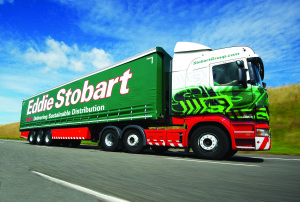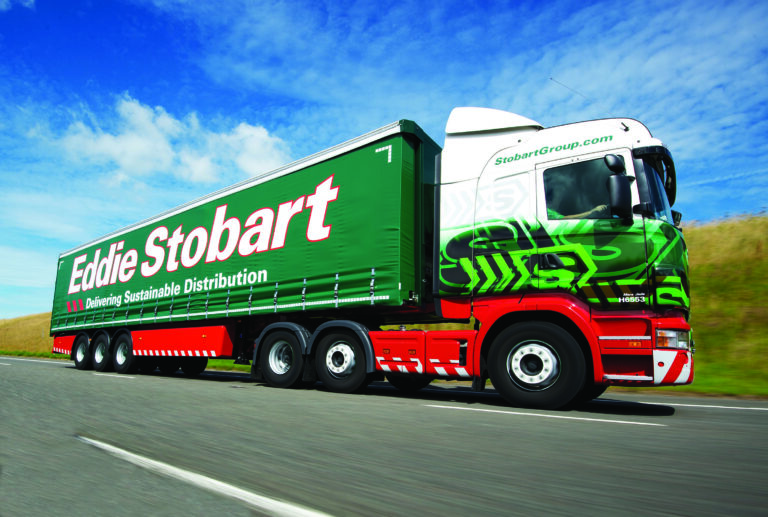Eddie Stobart Logistics is considering the possibility of a name change when its licence with Stobart Group runs out in February 2020, chief executive Alex Laffey has confirmed as the company unveiled its results for last year.
 “The team at Eddie Stobart is passionate about our name and the leading brand,” he said. “However, we also recognise that following the introduction of our new strategy and the recent acquisitions, we need to review our position given the broader range of supply chain services we now offer.”
“The team at Eddie Stobart is passionate about our name and the leading brand,” he said. “However, we also recognise that following the introduction of our new strategy and the recent acquisitions, we need to review our position given the broader range of supply chain services we now offer.”
The Eddie Stobart name is owned by the Stobart Group, and ESL has three options beyond 2020 to continue with the licensing arrangement:
* Pay £3 million a year for continued use of the licence
* Purchase a perpetual licence for £15 million for use in the logistics market
* Purchase a perpetual licence for £50 million for unrestricted use
Laffey said: “The board is committed to reviewing all options and we will ensure we consider the views and interests of our people, customers and shareholders before deciding on the best way forward.”
Sales rose 9.4 per cent at Eddie Stobart Logistics to reach £623.9 million in the year to 30th November 2017, although operating was down one per cent to £26.6 million.
Laffey said the acquisition of iForce brought new customers in the e-commerce sector, contributing to an increase in revenue of 111 per cent to £103.4 million.
The Manufacturing, Industrial and Bulk business grew by 37 per cent to £182 million through a mixture of organic growth and contract wins.
“Within Consumer, revenues in the year were down by 12 per cent to £144.6 million. This was due to the loss of one significant contract, which I am now pleased to say has been successfully re-secured,” said Laffey.
The company renewed £41m worth of contracts during the year, while business wins accounted for £89m.
Looking ahead, chairman Philip Swatman said: “We continue to see encouraging trends in all sectors with new and existing customers considering outsourcing, so that they can concentrate on their core operations and customer offerings.
“We have also seen further consolidation in the logistics sector in 2017 and early signs indicate that the trend will continue, providing further opportunities for growth.
“While our existing business in continental Europe is small, we have ambitions to develop this, replicating our successful model in the UK. We will be keeping the Brexit position under review but, to date, we have seen no significant impact from Brexit on our business.”







